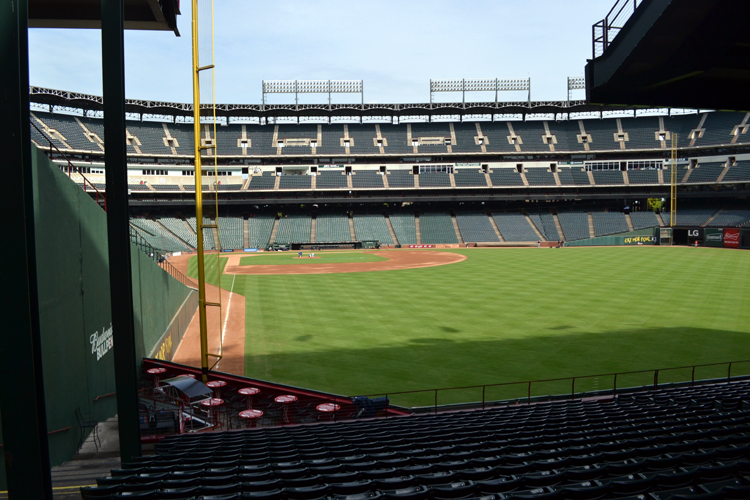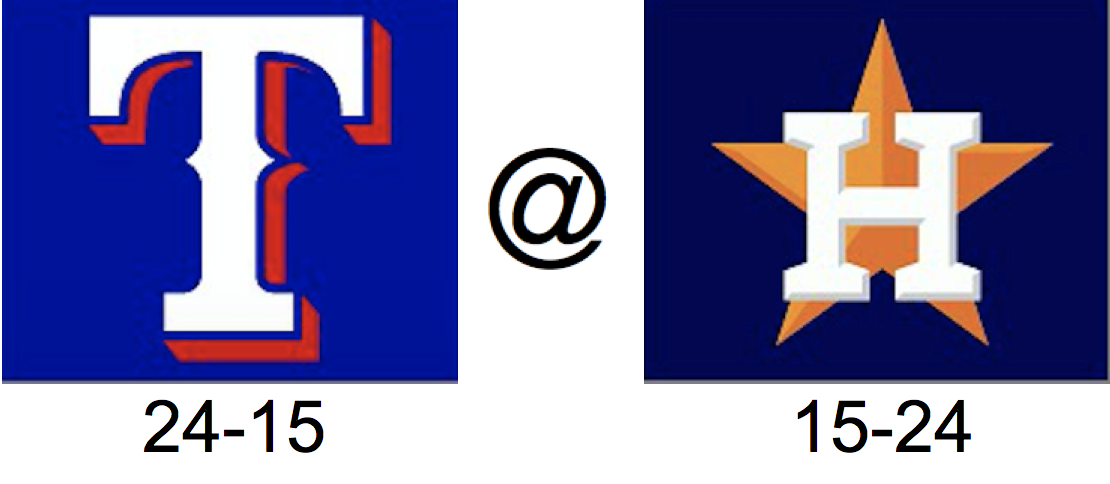Attendance is down in baseball ten percent.
Attendance is down in Arlington fifteen percent. That is according to the Dallas Morning News.
But you don’t have to read the local paper to know that. All you have to have is a working pair of eyes, or even one working eye, or even one partially working eye and the other one is glass, to see that every game at the Ballpark is about a third full.
A lot of reasons are given for this decline across the sport.
The first reason is weather. It’s not an excuse, it’s a reality. Baseball used to go from mid- or late-April to mid-September, then the World Series would start.
Then baseball expanded. So, it went until later in September and the post-season spilled over into the first week of October.
Then they said, “Let’s have more playoffs” So the post-season stared early October. Then they added more playoffs and more rounds again. Now it ends in November. When most of the country is iced over.
They used to have regularly scheduled doubleheaders. So, the season could start later and end earlier. But that meant giving fans more for their money, and that doesn’t do owners any favors. Nothing free. They are even considering ways to ask for more money on the way out of extra inning games.
So, now, to prevent the Fall Classic from being the Winter Classic, they are starting the season earlier. And earlier. Fans be damned. Quality of baseball be damned.
If a tree falls in the woods and nobody is there to see it, did it really happen? If a baseball game is played in the snow and sleet and brutally chilly conditions and nobody is there to watch it, did it really happen?
Owners have gotten greedy. Players want more time off. The result is a season that is stretched far beyond the limits of a fan’s interest level and of the weather’s cooperation The Cubs’ Anthony Rizzo wondered aloud the other day whether the season should be shortened because those early games are just awful baseball. The owners, responding in true head-in-sand fashion, said, “If you want the season shorter you need to take less money because we will have less revenue.” They totally ignored the fact that the integrity of the game and the interest of the fans are compromised.
And they totally ignore that they already are ending up with less revenue anyway because nobody goes to watch a major league game when it’s 35 degrees.
They are already suffering a ten percent loss in attendance. And they are still paying the players one hundred percent of their salaries.
Einsteins they are not.
Then there is the fact that baseball has devolved into soccer. Pitchers have developed velocities that are beyond the ability of human batters to react to. So, it’s a game of strikeouts, with the occasional hit. Even the deadball era had movement. This era has dot races.
The problem compounds itself in Arlington because the Dallas-Fort Worth area is not a baseball market. The Cowboys haven’t been good or relevant for twenty years, but this is a Football Town; they will always draw. The Cowboys could lose every game the next fifty years (and they just might as long as Jerry Jones is the GM) and they would outdraw an apathetic Rangers team.
The Rangers are saving face with their announced attendance. It’s routinely around 24,000. The trouble is, that’s not the actual butts in seats attendance. And that’s where the team makes it serious revenue. Ticket revenue is good. But it’s about a quarter of what the team makes when a fan actually shows up and pays for parking and food and beverages and merchandise. The Rangers have give-away nights not to be fan friendly, but in an attempt to get fans in the Ballpark. The money is in fans being there.
The other deterrent is the quality of play of the field. In signing a rotation full of reclamation projects and rejects and has-beens, the Rangers front office held up the proverbial middle finger to the fan base who, correspondingly, responded in the most vociferous way possible: apathy. Every empty seat is a fan’s way of telling ownership exactly what it thinks of the job its front office is doing.
The arrogant baseball man will scoff and ask, “What do fans know?”
They know bad baseball when they see it. Or, more aptly, when they refuse to see it.
*****
TODAY’S GAME:
Cole Hamels (1-4, 3.94) vs. Justin Verlander (4-1, 1.17)
Game time: 7:10
How the Rangers hit against Verlander.
How the Astros hit against Hamels.

